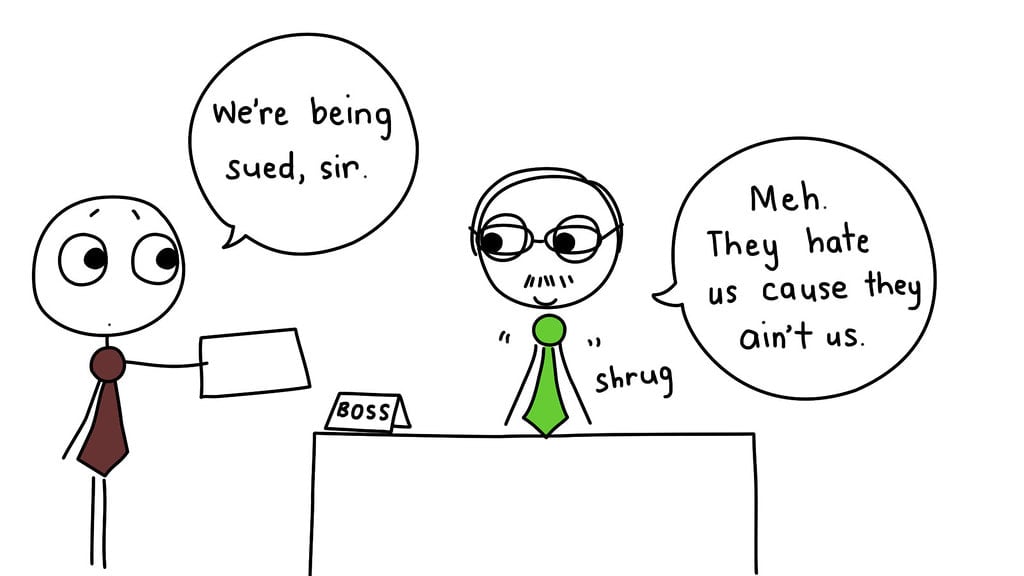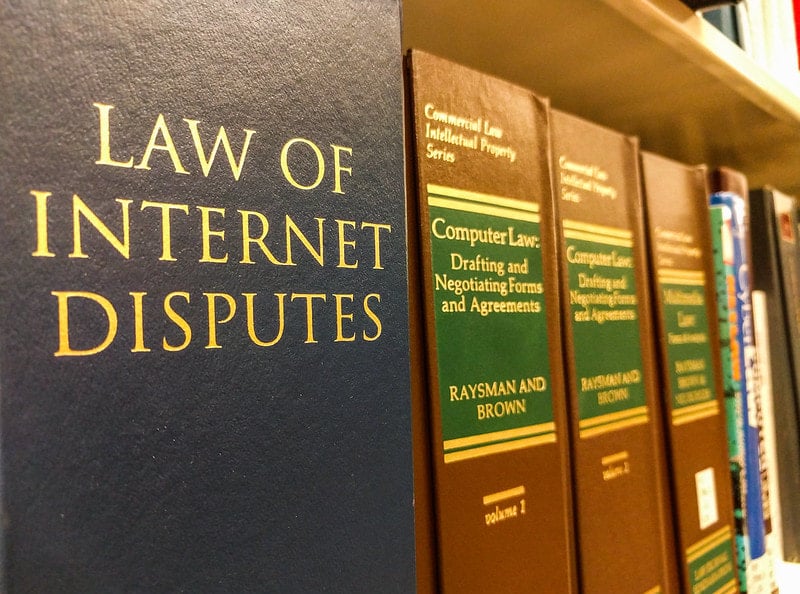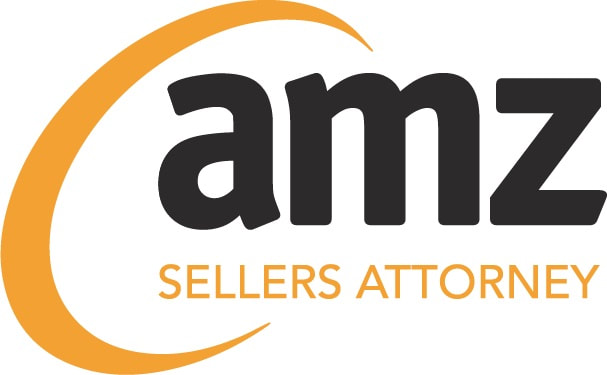|
TROs Are Serious
If you have received a notice of a temporary restraining order (TRO) that has frozen proceeds on your Amazon seller account, it means you have been sued, usually for intellectual property infringement. In these cases, Amazon will usually not suspend your seller account. They will, however, freeze your sales proceeds and prevent you from using your working capital in the account until the case is resolved or settled. This is not something you can ignore, because there are strict time limits to litigation. If you have received such a lawsuit, or a notice from Amazon, call us right away for a free consultation. If you are not based in the United States you still must take any complaint for intellectual property infringement seriously because it affects much more than just your Amazon seller account. These complaints are filed in federal court and, if not taken care of, could seriously affect your business in the United States. If the matter is not settled, it must be litigated, which could cost anything upwards of $50,000. If it is not litigated or settled, you could end up with a default judgment against you, which can be levied against any asset you may own that can be found in the US. Early Settlement is the Key Amazon has nothing to do with the lawsuit, and no appeal or other action can force or convince them to unfreeze your proceeds. An early settlement will release you from the lawsuit, save you thousands in attorney fees, and release your Amazon sales proceeds. These cases are filed against numerous sellers by large firms typically in New York and Illinois, who are not easy to deal with and often not very communicative when it comes to sellers who represent themselves. We have been successful at settling almost 99% of these cases we come across, at a fixed rate that can save you thousands. We Can Help If you find yourself sued for intellectual property infringement, do not try to handle the matter by yourself. We will not appear in the action, because such is a time intensive and expensive endeavor. For a reasonable fixed fee we will negotiate the best settlement possible. Success on Amazon is due in part to how quickly a seller may access an e-commerce platform. Unlike Walmart, which puts its prospective sellers through an extensive vetting process, it is relatively easy to obtain a seller account on Amazon, if you can prove a physical address with a utility bill and have a valid credit or debit card. Unfortunately, this means you are competing with thousands of sellers with little or no e-commerce experience, as well as many fraudsters and counterfeiters. Amazon’s answer to the problem is not to vet sellers to prevent intellectual property infringement, but to create a massive bureaucracy dedicated to catching counterfeiters. And with intellectual property infringement complaints or even the suspicion of intellectual property infringement, they will not hesitate to pull the trigger and suspend your Amazon seller account. As a consequence, Amazon sellers are advised to take preemptive measures to prevent Amazon seller account deactivation or suspension. Appeals can take months to resolve, and this can put even the healthiest ecommerce store out of business. Amazon’s selling policies strictly require Amazon sellers to comply with applicable intellectual property laws, which result in suspensions for patent infringement, trademark infringement and copyright infringement on a daily basis. Patent infringement can be either the use of a patented technology (utility patent infringement) or design (design patent infringement). Copyright infringement results from the use of someone else’s original images, literary or art works. Trademark infringement is the unauthorized use of a trademark in connection with the marketing of goods in a manner that is likely to cause confusion with regard to the source of that product. Many sellers will list their registered trademark in connection with the sale of generic products so beware! Even if you are selling the same generic product, if the brand of the listing is a registered trademark, you could be subject to ASIN deactivation or seller account suspension. Preventative Measures to Avoid Infringement ComplaintsAuthorization Letters It is often difficult to deal with wholesale suppliers or brands, especially if they are sizable enterprises, but one method to avoid suspension for intellectual property infringement is to obtain a letter of authorization from the brand and, if not the brand, from the brand’s authorized wholesale distributor, who should identify itself as such. Amazon will often ask for such a letter in the event of an infringement complaint. Proper Invoices Amazon will always ask for invoices in the case of intellectual property infringement complaints, and they have specific requirements for those invoices. These requirements include they must be within 365 days, they must show the name and address of the buyer (Amazon seller) and the name, address, telephone number, email and website address of the seller (your supplier). Amazon will contact the supplier to verify the invoice so, whatever you do, do not alter them in any way. The invoice should also reference the brand and name of the product. Alternative Retail Site Having an ecommerce website or a Shopify site, as well as eBay and Walmart seller accounts will allow you to stay in business in the event of a suspension or deactivation, which could take months to resolve. File Proactive Appeals A proactive appeal should be filed on any policy warning or listing removal, especially with regard to intellectual property or inauthentic product listing removals. This shows Amazon you are serious about complying with their policies. We here at Amazon Sellers Attorney provide such a service on a monthly basis. For $500 per month, you get free unlimited appeals. Our clients rave about this service, because $6,000 a year is a lot less expensive than paying thousands to appeal a suspension and losing tens or hundreds of thousands of dollars in lost revenue. Copyright Infringement Prevention Make sure the images you use on your product packaging and detail pages are original or licensed by you from the creator of the image or a reliable stock photo service. Also perform general searches on any products with a particular design to ascertain if anyone claims copyright on them, including checking with the US Copyright Office for registration. Patent Infringement Prevention Many suppliers, especially from unverified sources such as Alibaba, sell knock off or counterfeit products. Make sure you are dealing with a reliable supplier and go the extra mile of checking for a registered patent on the USPTO or a service such as Google Patents. Check designs for potential design patent infringement. Trademark Infringement Prevention The First Sale Doctrine provides that those who resell genuine trademarked products are not liable for trademark infringement. However, many aggressive brands will file infringement complaints and this defense is not going to prevent suspension. Check the brand name of every listing you plan to join with the USPTO before you list the product. And remember, even if Amazon “invites” you to join a particular listing, that does not mean you may do so with impunity. Always check first. Trade dress or logos can also be trademarked, as well as fabric patterns. A search service such as Trademarkia.com can help you search for designs that may have trademark protection. Parting Words
The old adage “an ounce of prevention is worth a pound of cure” is more applicable to Amazon sellers than anyone else when it comes to preventing intellectual property infringement complaints. And remember, Amazon Sellers Attorney is here to help with both prevention and suspension. |
|
- Reviews
- Amazon News
-
Our Services
-
Amazon Appeals| Reinstate Account
>
- Amazon Appeal Inauthentic Item Suspension
- Amazon Appeal ODR Suspensions
- Amazon Related Account Appeals
- Appeal Amazon Verification Suspension
- Amazon Restricted Product Appeals
- KDP and ACX Termination Appeals
- Merch by Amazon Termination Appeals
- Amazon Drop Shipping Policy Appeals
- FBA Reimbursement Abuse Suspensions| Appeals
- Amazon Relay Suspension Appeals
- Amazon Safety Complaint Appeals
- Sales Velocity Suspension Appeals
- Amazon Sales Rank Manipulation Appeals
- Amazon Price Gouging/Fair Pricing Suspensions Appeals
- Amazon Review Manipulation Suspension Appeals
- Amazon Variation Abuse Appeals
- Amazon Forged or Manipulated Documentation Appeals
- Amazon Listing (ASIN) Removal? Reinstate Listing
- Amazon Seller Fraud or Illegal Activity Deactivation Appeals
- Amazon Account Hacked Suspension Appeal
- Amazon Funds Appeal
- How to Open Multiple Amazon Seller Accounts
- How to Settle Amazon TRO and Release Funds
- How to Settle Proposition 65 Cases and Release Funds
- Amazon Arbitration Lawyers Sue Amazon and Win
- Amazon Brand Registry Support
- Amazon Intellectual Property Lawyers >
- LLC Formation for Amazon Sellers
- Ebay Suspension Appeals
- Walmart Suspension Appeal
- Appeal Closed or Limited PayPal Account
- Etsy Suspension Appeal
- Amazon Hijacker Removal Service
- Twitter Account Suspension Appeals
- Temu Seller Suspension Appeal
- TikTok Seller Suspension Appeal
-
Amazon Appeals| Reinstate Account
>
- Free Consultation
- About Amazon Sellers Attorney
- Amazon Suspension Prevention with Free Appeals
- Top Rated Patent Attorney | Free Consultation
- Terms and Conditions
CONTACT DETAILS:AMZ Sellers Attorney®
9350 Wilshire Blvd. suite 203 Beverly Hills, CA 90212 (Mailing Address) نتحدث العربية
Türkçe konuşuyoruz Nous parlons français 🇫🇷 Мы говорим по русски 🇷🇺 Se habla español 🇪🇸 我們說中文 🇨🇳 |
SERVICES:Amazon Appeals
Inauthentic Item Suspensions Multiple/ Related Account Suspensions Amazon Verification Suspensions Forged or Manipulated Documentation Defending Buyer Complaints Plan to Prevent Suspension Intellectual Property (IP) Law Reinstating ASIN Fraud or Illegal Activity Hacked Account Listing Hijackers DMCA Lawyers Amazon Arbitration |
PAYMENTS:We accept payments from all major credit cards and also by ACH transfer through BlueSnap. Our purchase currency is US Dollar (USD). Payments made through our site are secure.

|
AS REPORTED IN:
|
|
|
|
|
|
Copyright © 2024 AMZ Sellers Attorney ® All Rights Reserved. Privacy Policy





 RSS Feed
RSS Feed